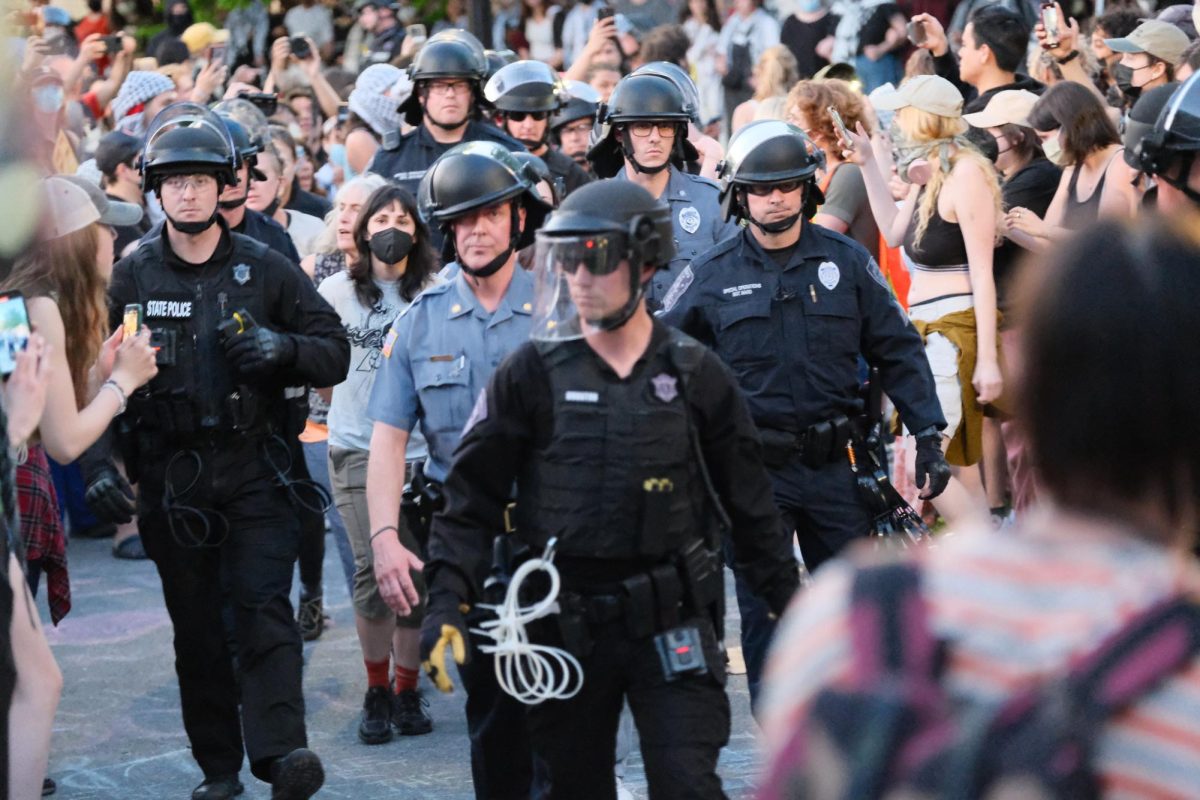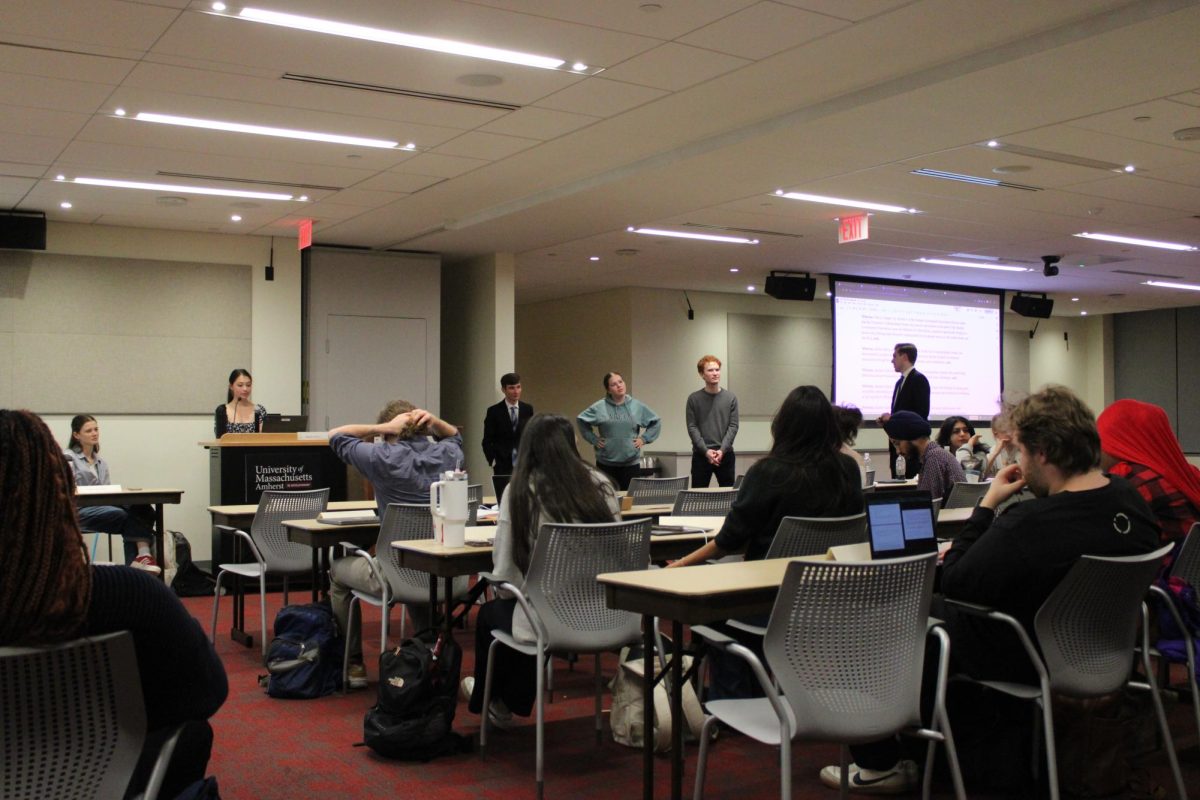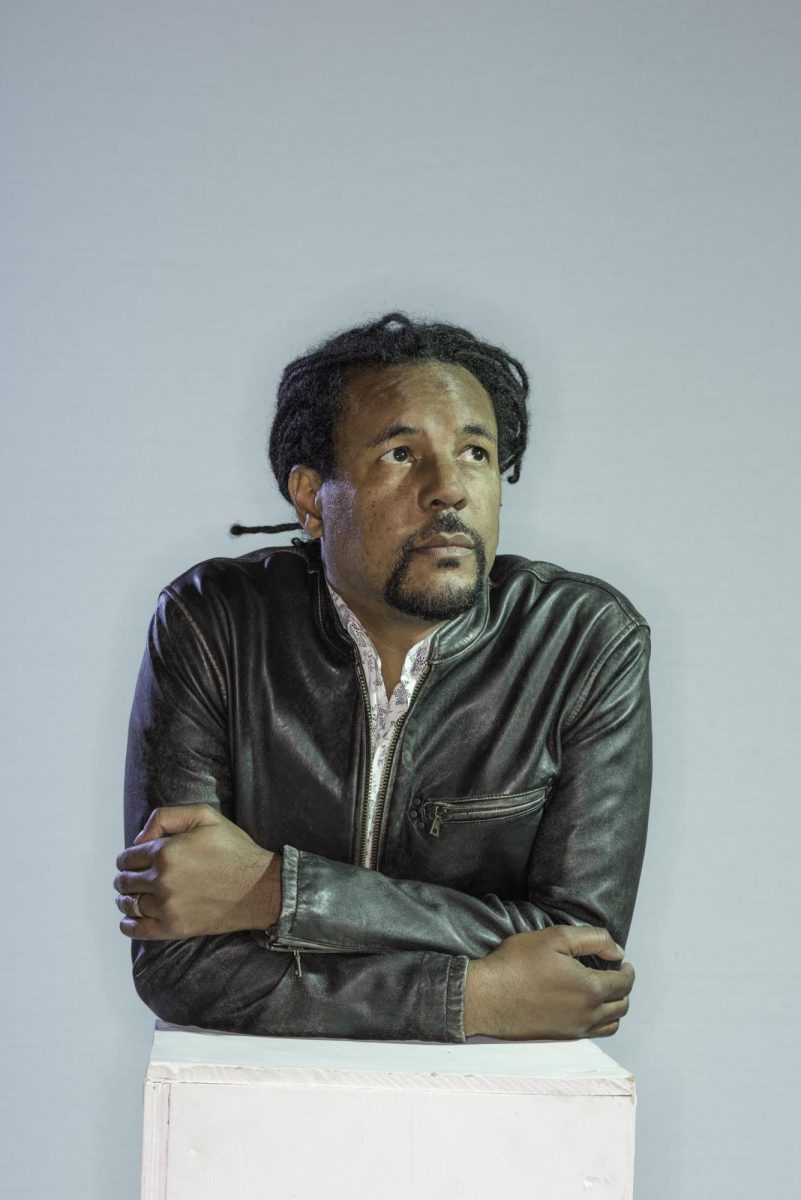
The MassPIRG chapter at UMass Amherst hosted a debate between the six candidates for state representative in the democratic primary for the third Hampshire district state house district Wednesday night in Thompson Hall..
Candidates include Vira Douangmany Cage, Solomon Goldstein-Rose, Sarah la Cour, Bonnie MacCracken, Eric Nakajima and Lawrence O’Brien. Current representative Ellen Story announced she would not seek re-election in January after representing the district since her election in 1992.
The third Hampshire district includes the towns of Amherst, Pelham and part of Granby.
All the candidates have past experience in local politics. Two of the candidates — Goldstein-Rose, a senior at Brown University, and O’Brien, a current social studies teacher at Belchertown High School – are former Amherst School Committee members. Douangmany Cage currently serves on the committee.
La Cour is the executive director of the Amherst Business Improvement District while Nakajima is the former director of the Massachusetts Broadband Institute and currently serves as an advisor to the Institute. MacCracken is a current member of the Democratic State Committee.
The debate started with two-minute opening statements from each candidate, in which they discussed their public service backgrounds and political priorities.
O’Brien emphasized his role as a candidate with a proven track record of progressive efforts. He discussed a number of policies including increasing the minimum wage to $15 per hour, making community colleges free and preventing charter schools from taking money from district schools.
Nakajima discussed his history in student activism as a student trustee at UMass and MacCracken emphasized her history fighting against illegal foreclosures in Massachusetts and her advocacy for women’s rights.
In balancing the needs of her family, community and working life, La Cour said she brings a breadth of experience to public office.
Douangmany Cage, who came to the United States from Laos as a refugee, also talked about her life experiences and how they inform her work, pointing out that her husband owns a small business and her stepson is graduating from the Amherst public school system this year.
Solomon-Rose said “systemic issues” need to be at the forefront of political focus.
Dean Robinson, an associate professor of political science at UMass, moderated the debate. He asked questions about the economy, healthcare and education policy.
All the candidates said they support a potential state “millionaire’s tax,” which would increase the tax on incomes over $1 million by four percent.
Multiple candidates also discussed the needs of local businesses.
“There’s no reason why local business should be shuttered,” Douangmany Cage said.
MacCracken said she empathizes with the challenges of small businesses having to reinvent themselves in a changing economy as a small business owner herself. She said job growth efforts need to impact the Pioneer Valley region, not just Amherst.
Goldstein-Rose emphasized his vision of Amherst as a center for clean energy. “We can be the place that events these (technologies),” he said.
La Cour also said she sees the economy as moving to innovation and entrepreneurship.
“We need to train the workforce for the jobs that are out there,” she said.
Nakajima said income inequality, the cost and affordability of housing and student indebtedness are important economic issues.
“The Commonwealth also needs a progressive tax of some kind to accomplish economic goals,” O’Brien said.
O’Brien, la Cour and Nakajima all said they advocate increased state funding for the University to at least the previous 50 percent levels.
In contrast, Douangmany Cage said public education should be free, while O’Brien stated he advocated freezing tuition and fees.
O’Brien described UMass as a public institution that has now been privatized.
MacCracken also said transportation is an obstacle for students to access college, as she pointed out that the bus system can take about an hour to get to Greenfield Community College.
Robinson asked the candidates about their thoughts on charter schools. All the candidates agreed that charter school operations should be re-examined, especially in the area of public accountability.
MacCracken and la Cour both emphasized that charter schools must remain an option, as children have different learning styles that may not be accommodated in traditional schooling.
The candidates held similar views in support of single-payer healthcare, reducing healthcare costs, a carbon tax and the Black Lives Matter movement.
The audience asked candidates about supporting legislation regarding postpartum depression screening and treatment, clean energy, preservation of the Pioneer Valley’s nature while pursuing growth strategies and what activism efforts they were involved in as students.
Editor’s Note: A previous version of this story incorrectly stated that the debate was hosted by the University of Massachusetts. The story has since been corrected.
Patricia LeBoeuf can be reached at [email protected] and followed on Twitter @leboeuf_trisha.



















Zac Bears • Apr 7, 2016 at 11:09 am
Sounds like these candidates had to answer more difficult questions than our current GOP presidential candidates. Always glad to see Dean Robinson asking the hard questions and pushing people to think critically.